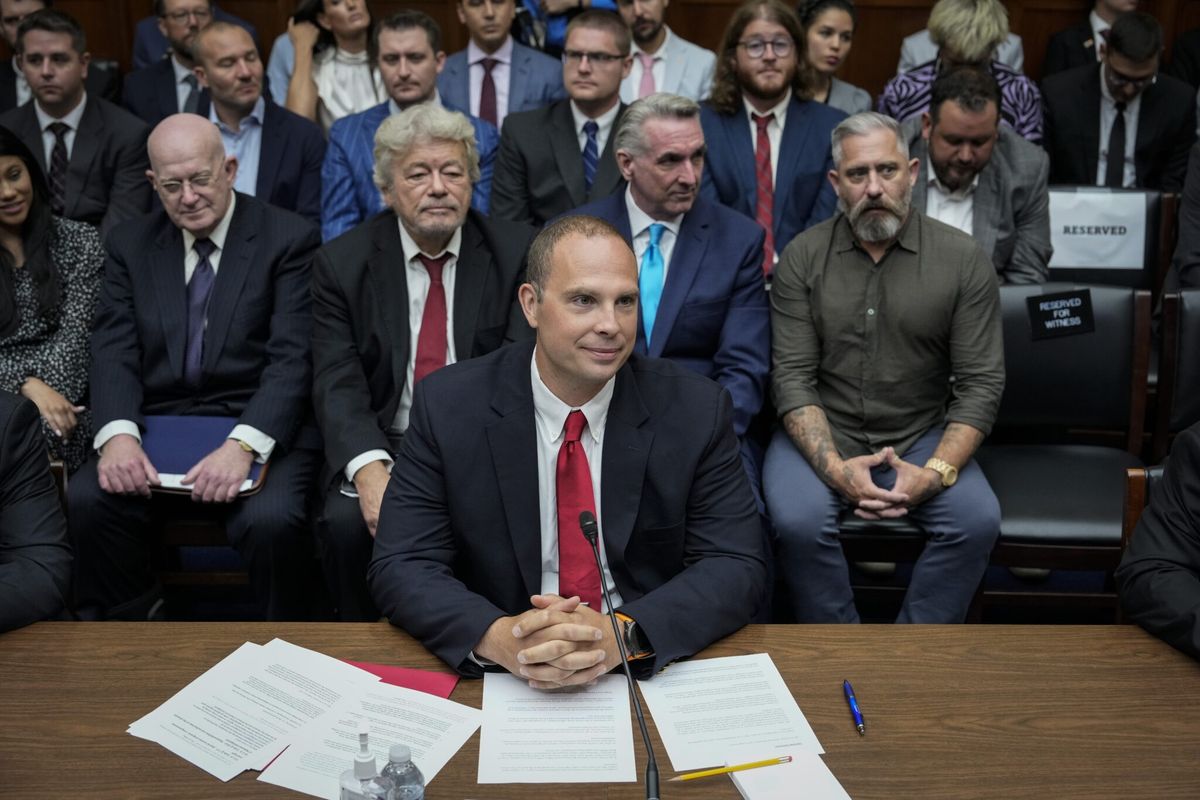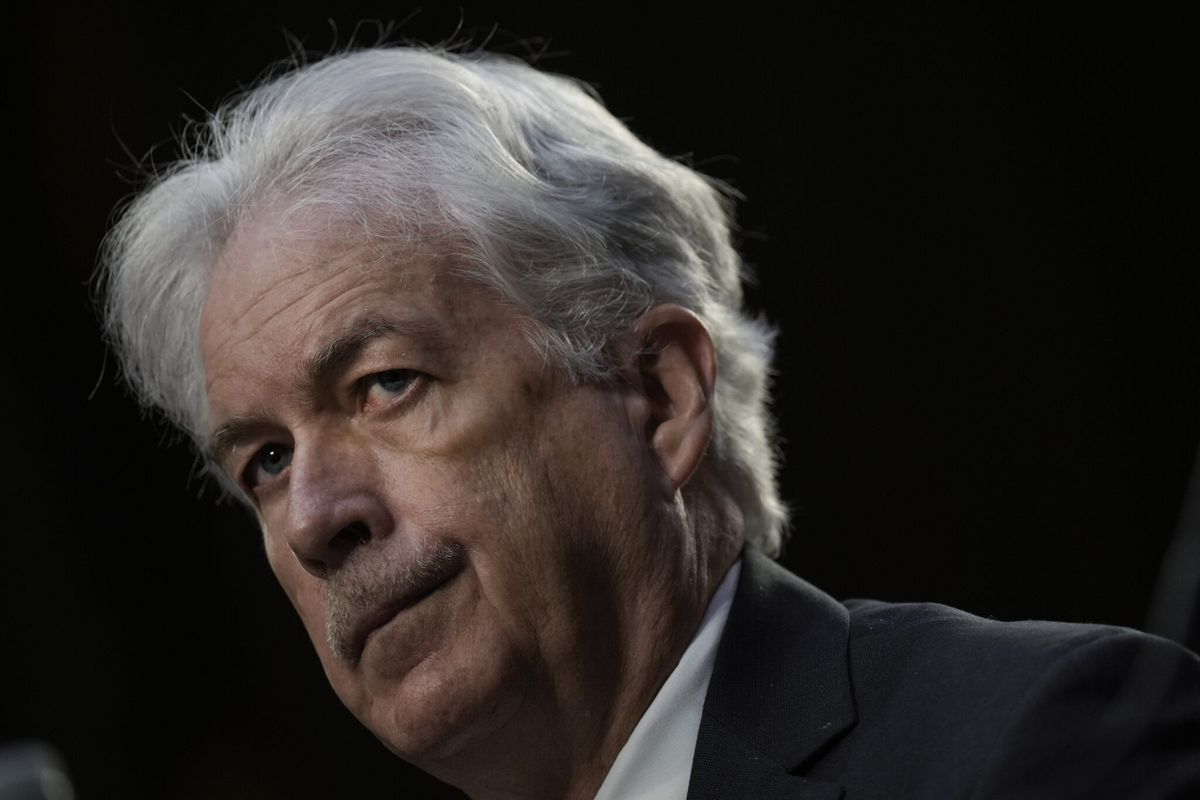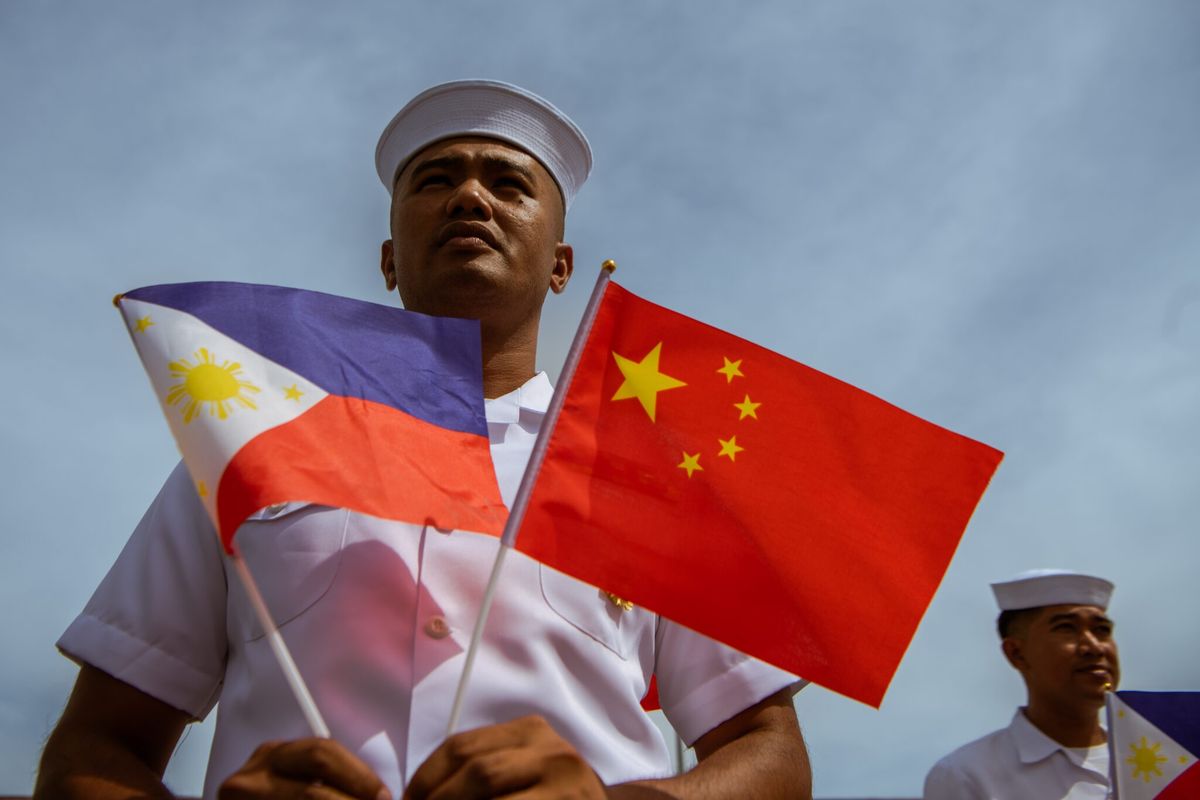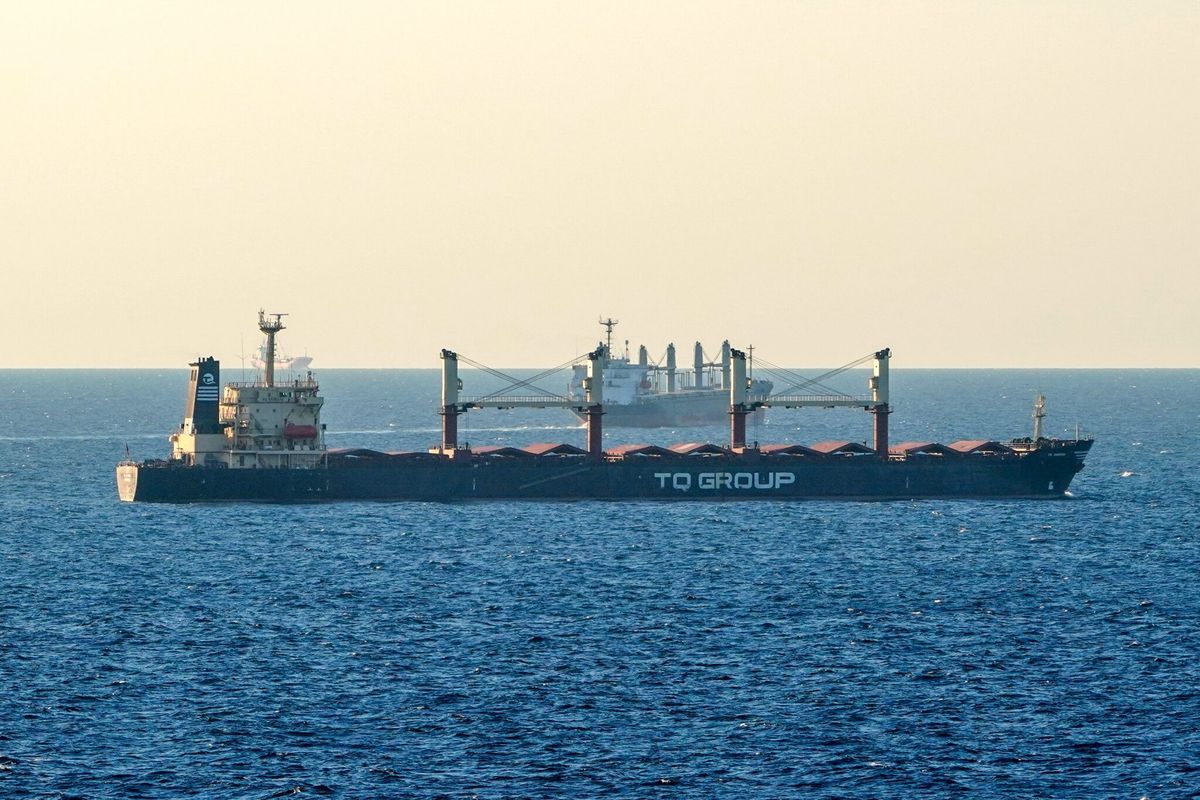SUBSCRIBER+EXCLUSIVE INTERVIEW – Russia's invasion of Ukraine in February 2022, prompted a re-alignment of global alliances that led to the launch of competing power projections, many just in the last seven days. Topping the list, are China and the U.S.
"We want to avoid a conflict, yet everyone's flexing some kind of military power," said Cipher Brief Expert Kevin Donegan, former Commander of the U.S. Fifth Fleet. "...you have western powers aligned with NATO, the U.S. and then Japan, Australia, and a few others. And then, you have the other side which is China, Russia, Iran, and potentially North Korea. And then, you have the unaligned, with India and the Middle East. Where are they going to fall?"
Where is the sabre-rattling headed and where are the areas that China, in particular, is projecting it's global power?
QUICK BACKGROUND
- A U.S. warship sailed through the Taiwan Strait on Sunday, just before Taipei announced plans to purchase up to 400 U.S. Harpoon missiles.
- Last week, China simulated a full-scale attack on the island following a visit to the U.S. by Taiwan's President Tsai-Ing-wen.
- The National Security Agency's director of cybersecurity Rob Joyce encouraged contingency plans for businesses in the event of a forced Chinese invasion; comments that came less than a month after the U.S. secured access to four Philippine bases close to Taiwan and the South China Sea.
- This week, the Group of Seven (G7) foreign ministers meeting in Japan, called on China to abstain from the use of force or coercion against Taiwan.
- In February, Russia, China and South Africa held military drills off the coast of South Africa.
The Cipher Brief reached out to Vice Admiral Kevin Donegan (Ret.) to share his expert views with Subscriber+Members on tracking China's global power projection. This interview has been lightly edited for length and clarity.
Vice Admiral Kevin Donegan (Ret.), Former Commander of U.S. 5th Fleet, the 32 Nation Combined Maritime Forces, and Director of OPS at CENTCOM
Vice Admiral (Ret.) Kevin Donegan, USN, served as Commander of the U.S. Navy’s Fifth Fleet and Commander of the 32 Nation Combined Maritime Forces in the Middle East. In those roles he led teams that planned and executed joint and combined combat, counter-terrorism and anti-piracy operations at sea and in Iraq, Syria, Afghanistan, and Yemen.
EXCLUSIVE INTERVIEW
The Cipher Brief: What is your perspective on the ratcheting up of tensions with China in light of Taiwanese President Tsai Ing-wen’s visit to the U.S. and the war games that followed?
VADM Donegan: We want to avoid a conflict, yet everyone's flexing some kind of military power. The Russians have done their Pacific exercise. We did one with the Philippines. We always do them with Japan. China has just done their exercise, often around the areas in Taiwan. That's a lot of things going on. Russia's exercise wasn't with the Chinese, but it was clearly timed to be with Xi's visit [to Moscow]. There is a move toward asking where is the world aligned?
If I step up and look at this strategically, Ukraine has forced a lot of people's hands into where they align. Look what's happened with NATO expansion, which we never expected would happen with these neutral countries. That's a direct result of where Putin has taken it.
So when you think of it from that standpoint, you have western powers aligned with NATO, the U.S. and then Japan, Australia, and a few others. And then, you have the other side which is China, Russia, Iran, and potentially North Korea. And then, you have the unaligned, with India and the Middle East. Where are they going to fall
It'll be interesting to see where they all fall, but what you are starting to see, is alignment around the belief that what Putin is doing in Ukraine is wrong.
The Cipher Brief: Sticking in the region around Taiwan, Tokyo is developing more offensive capabilities as China recently expressed concerns about encirclements by NATO in the Asia-Pacific region.
VADM Donegan: Japan has been working to develop more credible power from just the defense force that was put in place after World War II because they are very directly under missile envelopes from both Korea and China, and they live there every day.
We want them to be able to defend themselves because we have bases there and we have our own people there. And Japan is also still a huge factor in the global economic infrastructure.
Separately, Japan still needs energy, so they are buying oil at above cap from the Russians, but that doesn't mean they're not aligned with the United States. They're absolutely 100% aligned with the United States, but they still need oil, especially as a result of the reduction in nuclear power they had as a result of Fukushima.
The Cipher Brief: Regarding Taiwan itself, it’s historically been under 2 percent GDP for military spending, though that’s starting to change.
VADM Donegan: Taiwan knows, and everybody knows that Taiwan can't defeat China alone. Just look at Taiwan and its size. Their GDP is $829 billion. If you compare that to China, it's paltry and whatever they're spending on military, it's probably 12 to one between the two. Think of Cuba trying to generate some kind of capability to defend against the United States. That's probably the best way I can put it in terms of geography. So Taiwan needs the international support.
At the same time, they're a young democracy. They've only had a transition of power around four times, so it's still a relatively young democracy and China is putting tremendous pressure on Taiwan, that you're not seeing on the surface that is unrelated to the military. If you talk about election interference and cyber warfare, it's full bore against Taiwan from China.
They don't want Tsai to get reelected. During the last election campaign, they flooded the media with false claims to try to ensure she didn't win, because they'd love for the other party to come back in power and be marching toward unification. China's not just looking at this from a military standpoint, they're looking at all the elements of power they can bring in there.
I think that part of all the commentary now that is everyone has some assessment on when China would go to war as a result of Taiwan. You have commanders saying, "It'll happen in a decade" or "We're on this path now," and et cetera. I'll go back to what I said before. China doesn't want to go to war. They're doing what they can to avoid it, and they want to just continue to keep time on their side, so to speak, and not get on the clock. And they want to flex their ability to become a world influencer. They're doing that already.
This move they made with Saudi Arabia to help negotiate at least a reopening of ties with Iran. Trying to talk to Putin and not coming out really and saying, "I fully support what Putin's doing." They understand their role on the world stage and they want to be the peacemaker and the alternative to the United States. So, they're trying to do things the United States would do.
When people say, China is sailing their Shandong aircraft carrier off the coast of Taiwan, they're really doing what they've seen the US do time and time again when they want influence. They’re having exercises, using the military, and using their economic power where they can, and they’re probably having much greater capability to align all of that than the US does because of our system and the things that make us who we are.
It's harder for us to pull all that together. The president can say one thing, Congress could say another. One point worth to note is that Congress is pretty much aligned, relatively hard line on both sides of the aisle, relative to Taiwan's situation. But then again, they don't want war either. But they want the US to be strong, relative to China.
Looking for a way to get ahead of the week in cyber and tech? Sign up for the Cyber Initiatives Group Sunday newsletter to quickly get up to speed on the biggest cyber and tech headlines and be ready for the week ahead. Sign up today.
The Cipher Brief: Looking more closely at the state of play with regard to Taiwan, we often hear that America’s submarine fleet in the region is a bit of an ace-in-the-hole in terms of either preventing a conflict or providing enough confidence for a U.S.-Taiwan alliance in the region. Where does the U.S. stand in your perspective, especially as you look at China’s growing sophistication in its own military buildup?
VADM Donegan: It's a tactical question in a strategic scenario. So let's dissect it for a second from a strategic point, because you said, "How do we stand from a submarine [point]?" That's assuming that whatever's going to happen is going to unfold in the region and it's going to be related to something like Taiwan.
When you get to that state, a lot of things have gone wrong, because no country involved in this wants to see conflict. It's not in China's interest, it's not in our interest, it's not in Taiwan's interest, it's not in the global interest. It's what even [French President Emmanuel] Macron was [in China] saying, "Hey, everyone needs to look at this through a different lens."
But that said, it's a valid question because you can't be a deterrent force if you don't have capability. A country has to have a capability that can win a conflict if you choose to engage in one. When the country that is going to enter a conflict knows that the other guys can win, that is what gets you to your deterrent value. This isn't mutually assured destruction, it is about how it ends up. China doesn't want to take this to a conflict, but that doesn't mean it won't get there, because there's lots of roads to war that well-intentioned leaders didn't think would get to conflict but did. You call that miscalculation, or maybe there are different ways to describe it.
So is the sub force critical? Yes, it is. The closer you are to China, the stronger they are when it comes to ability to project power.
If you get out to the Middle East, China's ability to project power is extremely limited, but it's there. You start to close to in inside the Taiwan Strait, you're talking about miles, not hundreds of miles. And for the United States to project power there with surface or air forces, or even land forces, we know how difficult that can be. We all saw World War II, right, how hard that was. Well, it's degrees of difficulty harder, because you're in the backyard of [China]; if you're trying to defend Taiwan up close, you're in the missile envelopes of all the weapon systems that mainland China can put to bear. And to thwart those, you may have to attack mainland China? That’s not where we want to be fighting. We were defending Taiwan. But to defend, you need to have offensive capability.
So what do submarines bring? They bring, at least for the time being, the ability of a different dynamic that isn't subject to that missile envelope, so to speak, of China, and allows you a freedom to maneuver that doesn't put US forces in the same level of risk.
What’s brilliant about the AUKUS piece and why is that so important? Well, it's another set of submarines that can have the ability to operate there. Again, they’re not worried about the missile envelope, but they can wreak havoc on any navy that the Chinese would put to sea, or invading forces or whatever it could be. And if it's not just the US and UK that have that capability, but if you add Australia to it, and of course Japan, which has a tremendously capable submarine force, now you can start to see where that’s different.
The other thing you want to do besides submarines is make sure your forces aren't fixed. You'd love to have your forces be able to be wherever you want them to be. That's naval forces. Same thing with any ground forces – what bases can you use? You'd love to involve as many of our partners as we possibly can, so that China doesn't look at it as China against one other nation. They're looking at a potential political fallout that's much broader. They've watched what happened in Ukraine and they've learned from it. Look at the political fallout against Putin and where he stands now, as opposed to where he stood before that conflict.
It's not just for the President anymore. Cipher Brief Subscriber+Members have access to their own Open Source Daily Brief, keeping you up to date on global events impacting national security. It pays to be a Subscriber+Member.
The Cipher Brief: On that point, it is somewhat problematic to do long-term planning beyond a four-year election cycle. It does seem that China has a plan and how that folds into both U.S.-China competition long-term, and also the future of Taiwan.
VADM Donegan: Remember, for China the main drive is survival of the party and that Xi Jinping has anointed himself the leader for life is the number one thing that they're concerned about. So much so that they've sacrificed leadership, in some ways, of significant global business lines to ensure that they can still have control. In other words, the free market wave that was moving a little bit in China has been completely curtailed. And this is when they've taken leadership that could drive those companies to a really high level globally and replace them with party people. In other words, they know where that's going to go, but they don't view that survival of the party is in alignment with free market system of trade and global commerce, the way the rest of the world operates, and the rules and norms of global business. They don't want to follow those. And that's what makes this difficult.
And then you said, "Hey, it's easier for them to align their elements of National power." Yes. When they have that as their only driving function, they can be much more aligned. If we understand it from that standpoint, it's easier to understand that yes, we sometimes don't look at the horizon as long, or as far, as China can.
I will say that in the last several administrations, that's not the case. We have been pretty aligned, and let me take you through that a little bit. So back in the day when we saw the peaceful rise of China as our objective, including membership in the World Trade Organization, everybody got aligned behind that. And then when we found out China was not going to play according to the rules in world trade, very soon both sides of the aisle got aligned against them. And it goes back from the Obama administration, to the Trump administration, to the Biden administration. I don't think you've seen a significant difference in China policy from them.
To be quite frank, Biden's been stronger or almost as strong as Trump, relative to Taiwan. Biden is spending almost as much money to re-arm Taiwan, but is definitely less ambiguous in his language about defending Taiwan than even Trump was. Some people blame it on a slip of the tongue, it doesn't really matter. He's been less ambiguous. If there is one place where we've been consistent – everyone saw that going south from the standpoint that they weren't going to play by these international rules and norms for free trade, the past three plus administrations have been pretty aligned on their China policy. Former House Speaker Nancy Pelosi's visit to Taiwan and Tsai's meeting in the U.S. with current House Speaker Kevin McCarthy are great examples.
The Cipher Brief: Over the weekend, we were expecting a closure of airspace north of Taiwan. It seemed that the Taiwanese leadership negotiated a backtracking of the extent of that – it lasted just about half an hour. What does this say about diplomatic engagement in the region, specifically between these two parties that have been historically at odds with one another?
VADM Donegan: China wants to be perceived as a global peacemaker. So maybe because of what they heard from multiple avenues that what they were going to do wasn't just going to impact Taiwan, it was going to impact others in other countries and no one wanted to see that. They don't need that to be happening right now while they're doing what they're doing globally. However, I'm not privy to any of the information on this. I don't have an answer to what made the Chinese change their mind. But for whatever reason, they adjusted.
But again, our approach relative to China - to Taiwan - is we don't want it to be US-China. We'd love it to be the world doing what's right from the standpoint of global trade and not having conflict. That would be the optimum output. Not getting on any kind of road to war, allowing Taiwan to keep what it has and not having China do anything by force. To be frank, it's a long game and China has a lot on their side when it comes to proximity and time. What if somebody else gets elected there, and puts them back on a road to reunification? It wasn't that long ago they were on that road.
The Cipher Brief: There is a lot to think about with China in the context of collective security in the region and the recent diplomatic efforts out of Beijing.
VADM Donegan: When you talk about China, it is just the most complex thing we have to deal with because you cannot isolate it to any one thing. It's global. So the interconnectedness makes it immensely complex and tough.
The US is a superpower and we can do more than one thing at a time. And us seeing China stepping out in the world and trying to have influence, hopefully is a little bit of an eye opener to the point that I'm making: that we shouldn't just be thinking of China only in one region.
We have to continue to think about China globally, and realize that the further they get away, the weaker they are. We can win a lot of those things at range.
Read more expert-driven national security news, analysis and opinion in The Cipher Brief because National Security is Everyone's Business












